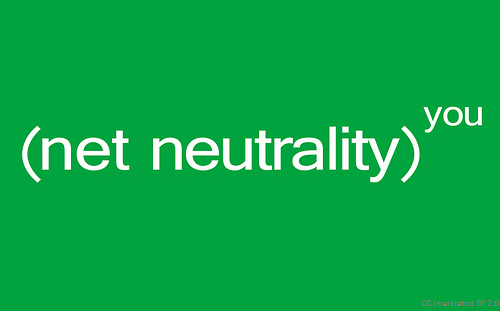The neutrality of the internet in Chile: Too much sophistication for SUBTEL?
by Digital Rights LAC on August 27, 2013
The neutrality of the internet in Chile is not much better now than it was three years ago, when there was no law in this regard. A large part of the responsibility for this can be laid at the door of the regulatory authority SUBTEL, which appears not to have taken on the technical challenges that the implementation of the legislation requires.
By Jose Huerta, ONG Cívico*
In the year 2010 we saw, with great pride, the publication of the world’s first neutrality law for the internet; yes, in Chile, where we are not accustomed to being so cutting edge in legislative matters. However, as many people feared, the law and the principles which uphold it continue to be at risk thanks to inadequate implementation by our regulatory body (Superintendencia de Telecomunicaciones, SUBTEL), which, as the law itself expressly mandates, must safeguard the rights which it bestows.
However, the reality departs considerably from this scenario. It can be affirmed, without any doubt, that in matters of neutrality, the country is not much better off than it was three years ago.
Although there is more information for consumers, due to the fact that the ISPs are obliged to be more transparent in many of their practices, the lack of clarity in the way they operate continues to affect users and content providers. Moreover, they can count on the organisation that has a duty to sanction their conduct, SUBTEL, to give its approval – or at least to turn a blind eye – to their conduct.
In over three years of operation, SUBTEL has not imposed a single fine on companies for matters relating to the poor quality of service brought about by the anti-competitive traffic management measures that the Chilean IPSs continue to practise.
Not without some difficulty, we have been able to find a couple of documents in which SUBTEL has requested information or demanded an alteration in a publication on a company’ s website. However, SUBTEL’s sections on active transparency lack any information that might even suggest an investigation or proceedings to determine what is going on in this area.
Day after day, users are seeing how the ISPs artificially curtail the capacity of different services and applications on the net, using as a pretext the authorisation granted by the law to carry out traffic management in a way that is informed and without anti-competitive effects. However, it can be assumed that any measure designed to degrade the quality of a particular service is, clearly, an anti-competitive measure, although the ‘positive’ effects of such a measure are felt by those providers of content or services that are not being managed in a negative way by the ISPs.
Two examples of anti –competitive measures:
a) If an ISP degrades the quality or speed of P2P downloads, those who use this system, for example to distribute their operating system (Ubuntu) or their online programming (like the BBC) will not be able to compete with those content providers that go along with the management practices of the ISP.
b) The same example as above, with the reduction in speeds of popular streaming services, which cannot compete even with services owned by the ISPs that are vertically integrated (and which provide, for example, cable TV or other video streaming services online).
As the law permits ISPs to carry out traffic management, it is left in the hands of SUBTEL to determine if such management is anti-competitive, and although we are totally sure that it is, in the offices of government they haven’t the least idea why we have reached these conclusions.
This is the major problem: the necessary sophistication required to understand issues of this kind has not reached the doors of the Chilean regulator, and this can be seen in the poor quality of public documents that reveal how actions taken by the administration are completely lacking in any technical rigour.
And the price for this lack of preparedness is paid by the whole market. Not only is the user defenceless against the activities of the ISPs, the content providers also possess no safeguards against activities of this complexity. Moreover, even the ISPs pay for SUBTEL’s lack of rigour: they find themselves being sanctioned for activities without any concrete proof or even the technical examination necessary to reach relevant conclusions.
This is why our organisation has taken this case to the Chilean Congress. It is our government representatives who should determine whether SUBTEL has neglected its duties (and its users) in the supervision and implementation of net neutrality in Chile. There is still time to see if the current situation can be reversed so that we can again feel proud of an initiative as important as the protection of the neutrality of the internet.
*José Huerta is the executive director of Cívico NGO
E.mail: pepe@ongcivico.org






